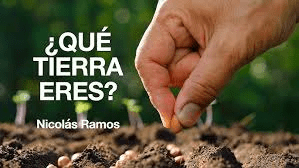
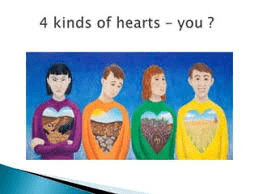
personal
![]() ¿Quién representa al Sembrador en esta parábola?
¿Quién representa al Sembrador en esta parábola?
![]() Who represents the Sower in this parable?
Who represents the Sower in this parable?
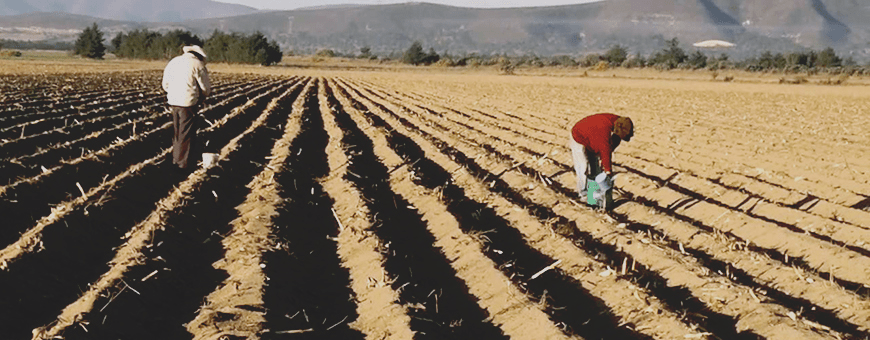
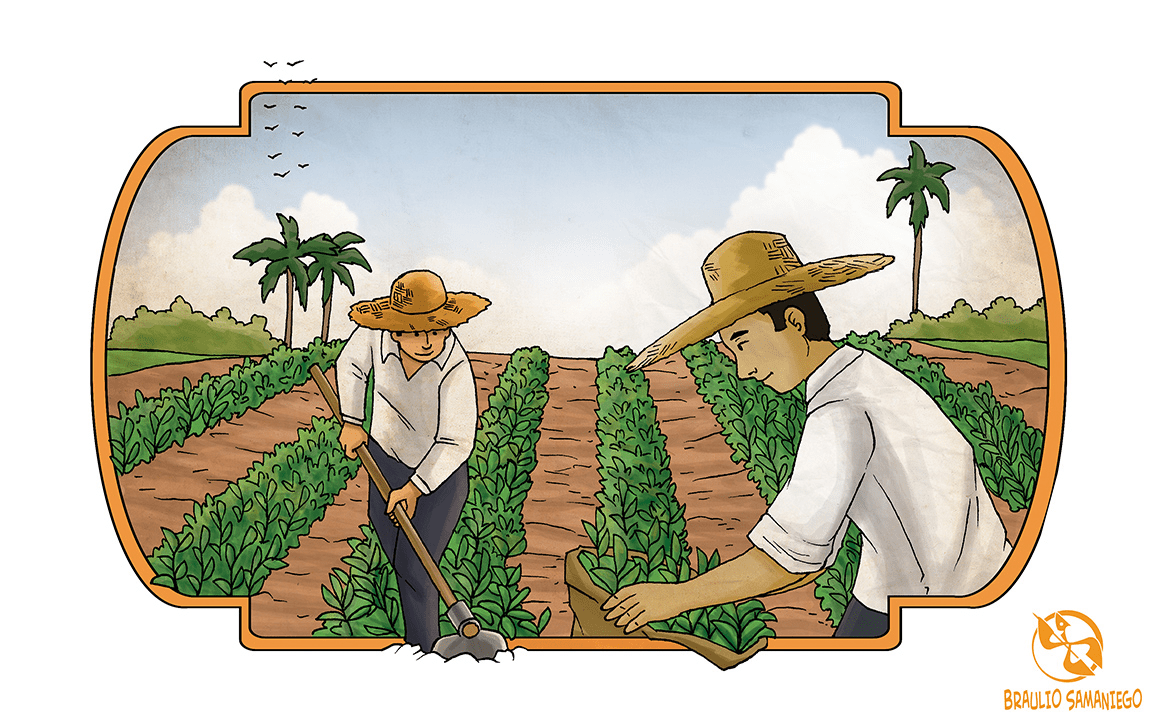
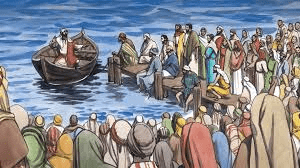
Dios
God
Nombra los cuatro tipos de tierra en esta parábola.
Name the four types of soil in this parable.
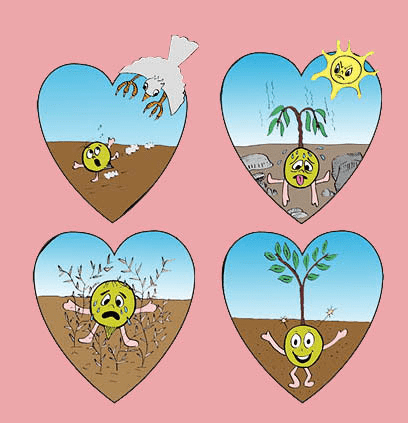
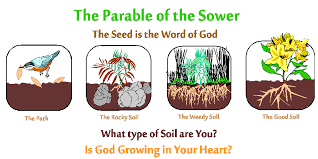
1. Tierra dura (junto al camino)
2. Tierra pedregosa ( tierra poco profunda )
3. Tierra entre espinos ( las espinas la ahogaron)
4. Tierra buena (creció y dio su fruto)
In this parable of the Sower, we see that the Sower planted his seed in four types of soil:
1. Hard soil (along the path)
2. Rocky soil (shallow)
3. Thorny soil (the thorns choked it)
4. Fertile soil (it grew and bore fruit)
versículo de memoria memory verse


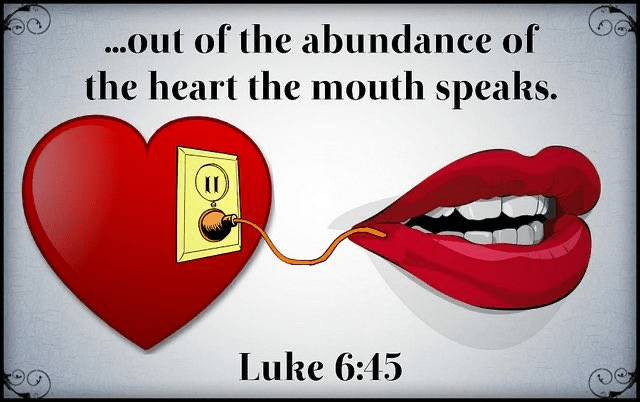
![]() Base bíblica:
Base bíblica:
![]() Biblical basis:
Biblical basis:
Marcos 4:1-20
Mark 4:1-20
![]() ¿Quién representa la tierra que cayó entre piedras en lugares pedregosos?
¿Quién representa la tierra que cayó entre piedras en lugares pedregosos?
![]() Who represents the earth that fell among stones in rocky places?
Who represents the earth that fell among stones in rocky places?
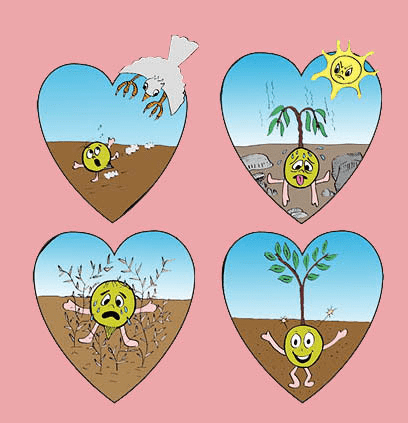
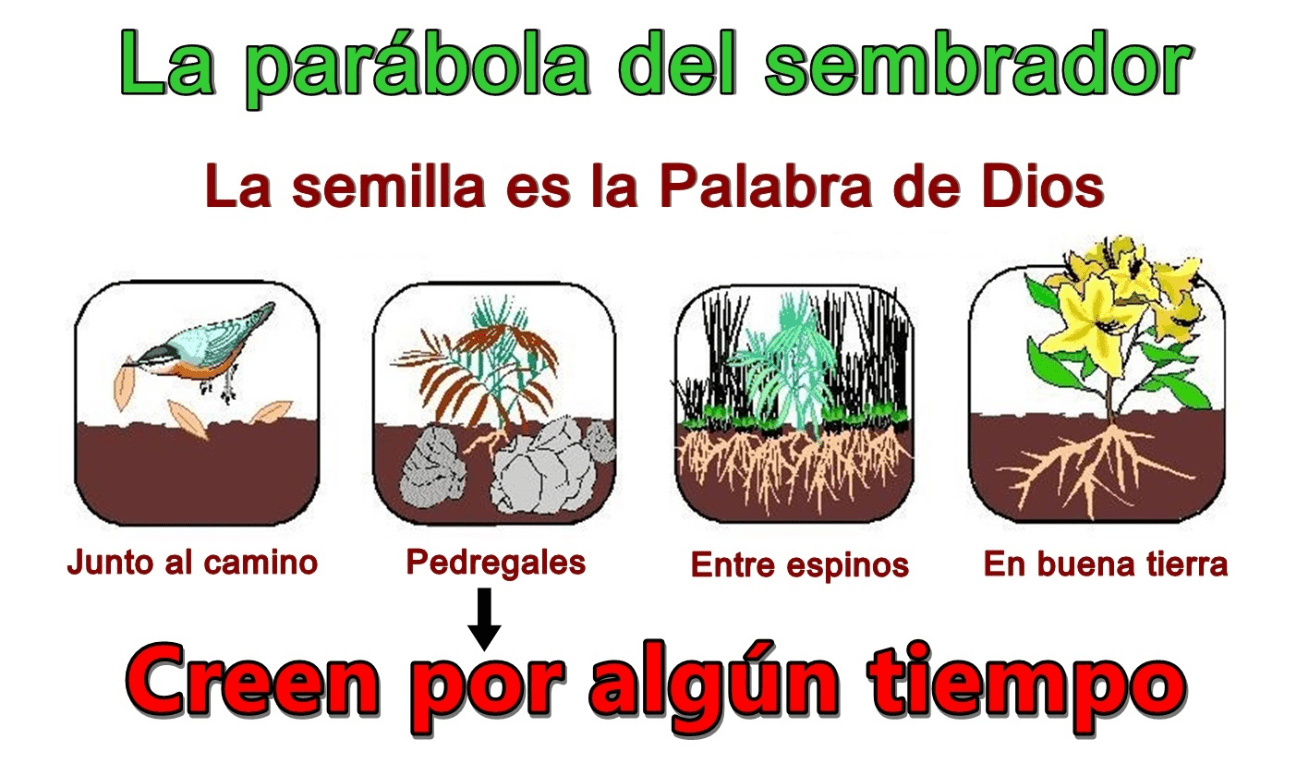
Aquellos que reciben el mensaje con alegría, pero al hallarse frente a la oposición o a la persecución, vuelven al mundo.
Those who receive the message with joy, but when faced with opposition or persecution, they return to the world.
![]() ¿Cuál es el énfasis de esta parábola?
¿Cuál es el énfasis de esta parábola?
![]() What is the emphasis of this parable?
What is the emphasis of this parable?

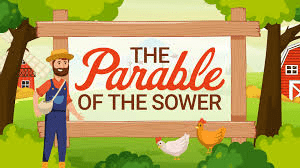
enfatiza la importancia de nuestro crecimiento espiritual y no dejar que las cosas del mundo nos alejen de Dios
It emphasizes the importance of our spiritual growth and not letting the things of the world separate us from God.
![]() Tema:
Tema:
![]() Theme:
Theme:
El problema es la tierra, no la semilla.
The problem is the land, not the seed.
![]() ¿Quién representa a la Buena Tierra?
¿Quién representa a la Buena Tierra?
![]() Who represents the Good Earth?
Who represents the Good Earth?
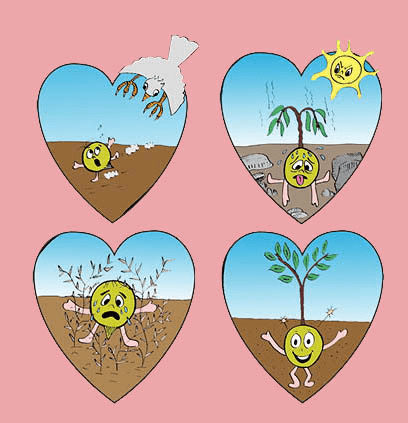
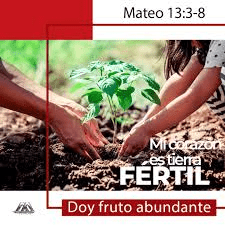
las personas que oyen la palabra de Dios, la entienden y la aceptan con una actitud de obediencia y sinceridad.
The people who hear the word of God, understand it, and accept it with an attitude of obedience and sincerity.
![]() En la parábola del Sembrador ¿Quien representa la Tierra?
En la parábola del Sembrador ¿Quien representa la Tierra?
![]() In the parable of the Sower, who represents the Earth?
In the parable of the Sower, who represents the Earth?

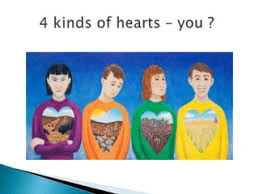
El corazón humano
The human heart.
![]() ¿Quién representa la tierra que cayó entre espinos?
¿Quién representa la tierra que cayó entre espinos?
![]() Who represents the ground that fell among thorns?
Who represents the ground that fell among thorns?
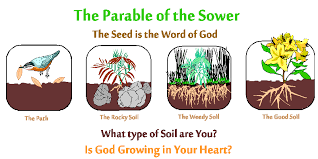
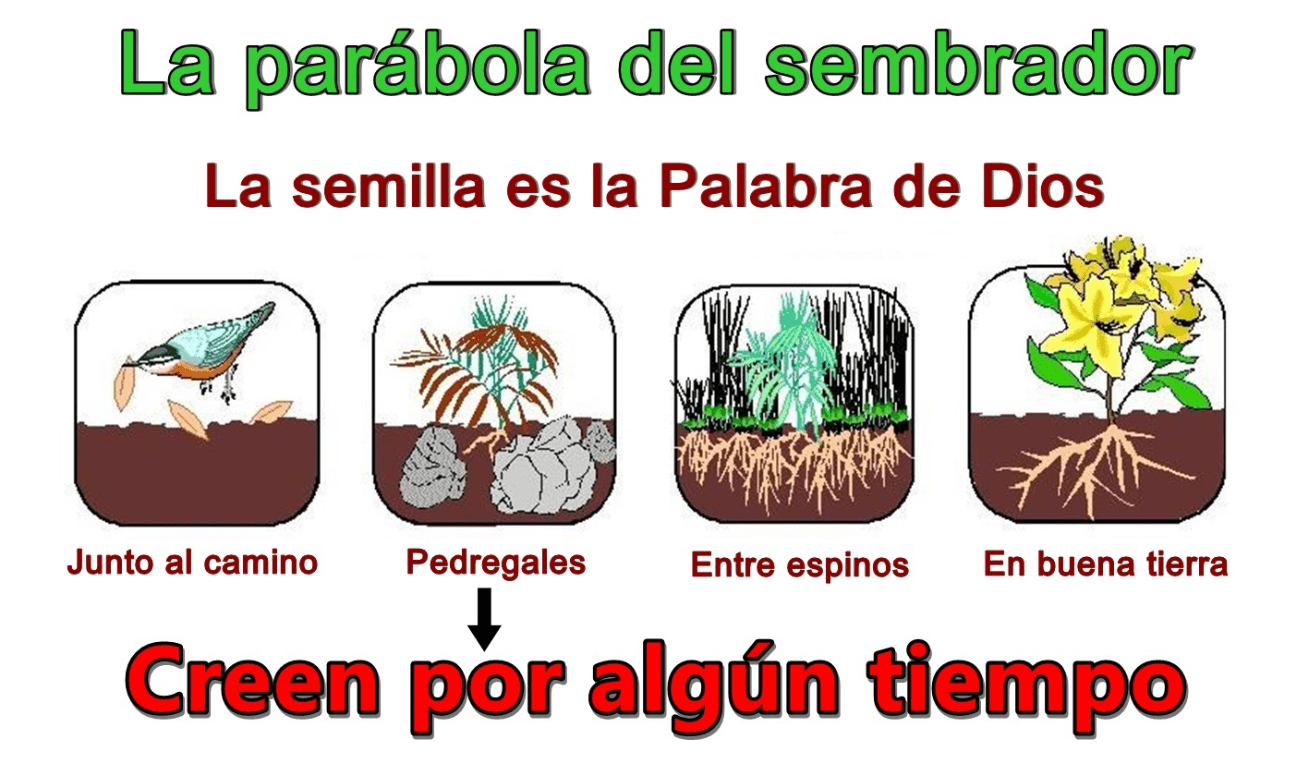
Representa a quienes escuchan la palabra de Dios, pero creen que las cosas mundanas son más importantes, y se distancian de Dios sin comprender que esta es la peor decisión que un ser humano puede tomar. Alejarse de Dios es la peor decisión de todas.
It represents those who hear God's word but believe worldly things are more important, and they distance themselves from God without understanding that this is the worst decision a human being can make. Turning away from God is the worst decision of all.
![]() ¿Quién representa la tierra dura o la semilla que cayó al borde del camino?
¿Quién representa la tierra dura o la semilla que cayó al borde del camino?
![]() Who represents the hard soil or the seed that fell by the side of the path?
Who represents the hard soil or the seed that fell by the side of the path?

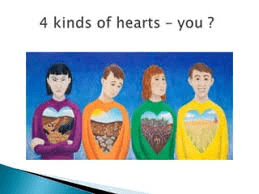
Representa a quienes oyen el mensaje (la palabra de Dios) pero no lo entienden, y el maligno, el diablo, los arrebata antes de que echen raíces.
It represents those who hear the message (the word of God) but don't understand it, and the evil one, the devil, snatches them away before they can take root.
![]() Mencione los dos propósitos por los cuales Jesús habló en parábolas:
Mencione los dos propósitos por los cuales Jesús habló en parábolas:
![]() Mention the two purposes for which Jesus spoke in parables:
Mention the two purposes for which Jesus spoke in parables:
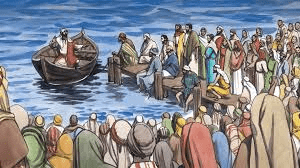
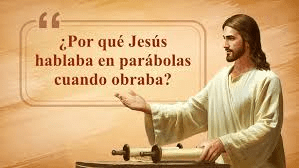
1, era enseñar las verdades del Reino de Dios;
2. El otro era ocultar las verdades del Reino de Dios a aquellos que no quieren saber nada acerca de Dios.
1. To teach the truths of the Kingdom of God;
2. To hide the truths of the Kingdom of God from those who don't want to know anything about God.